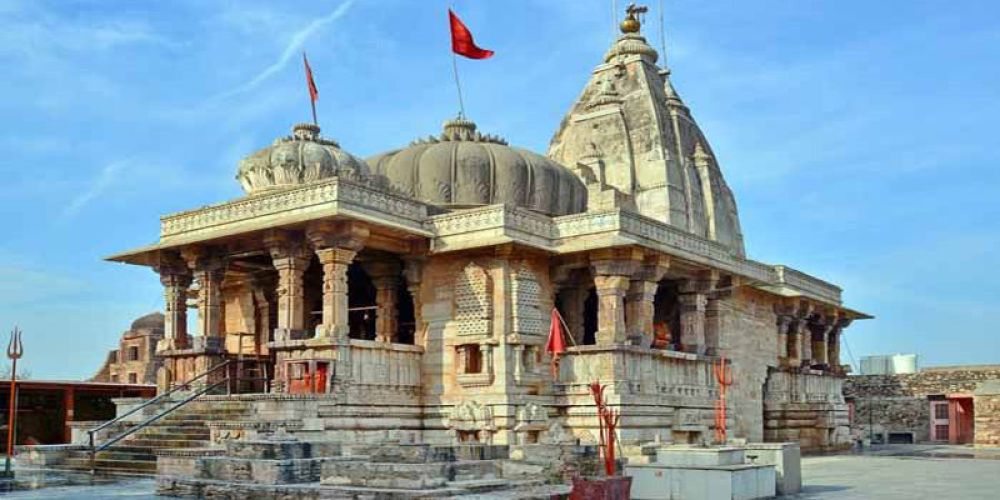

Kalika Mata Temple, situated atop the Chittorgarh Fort in Rajasthan, is an epitome of ancient Indian devotion and architectural splendor. The origins of the temple date back to the 8th century, and it is dedicated to the worship of Goddess Kali, an incarnation of Goddess Durga. The temple, originally a Sun temple built by King Bappa Rawal, was later transformed into a Kali temple in the 14th century.
The temple has been a significant destination for pilgrims for centuries. However, the advent of modern tourism brought a new wave of visitors, intrigued by the temple's historical and cultural importance. Its location within the precincts of the massive Chittorgarh Fort further enhances its appeal, attracting history buffs and tourists alike.
In the early days, the temple was primarily a pilgrimage site. With the rise of heritage tourism in India, Kalika Mata Temple began to receive attention for its stunning architectural features and panoramic views of Chittorgarh. The government and various tourism boards have since played pivotal roles in promoting it as a must-visit spot within the fort complex.
With the fort's recognition as a UNESCO World Heritage site, the flow of domestic and international tourists has surged, leading to the development of better facilities and services around the area, thereby making it more accessible and informative for visitors.
In recent years, there has been an increase in the temple's popularity during the annual festivals, such as Navaratri, when devotees and tourists gather to witness and participate in vibrant rituals and celebrations. Additionally, the sound and light show at the Chittorgarh Fort has also become a major draw.
Another trend is the integration of digital experiences. Virtual tours and extensive online information about the temple's history, architecture, and religious significance have become more commonplace, catering to the growing demand for digital content among tourists.
Sustainable tourism is a crucial focus for the site, aiming to preserve the historical temple while accommodating visitors. Efforts have been made to maintain the integrity of the temple and the surrounding fort without compromising on the visitor experience. This includes providing guided tours to educate tourists about the importance of conservation and implementing measures to reduce environmental impact.
Moreover, the Archeological Survey of India has been actively involved in the conservation and restoration of the Kalika Mata Temple and other heritage structures within the Chittorgarh Fort, ensuring that they remain a testimony to India's rich cultural legacy for years to come.
The Kalika Mata Temple of Chittorgarh stands as a beacon of historical and cultural significance. It epitomizes the blend of palpable spirituality and majestic heritage. Tourism at this ancient site continues to thrive, driven by a collective effort to preserve its past while embracing modernity and sustainability.